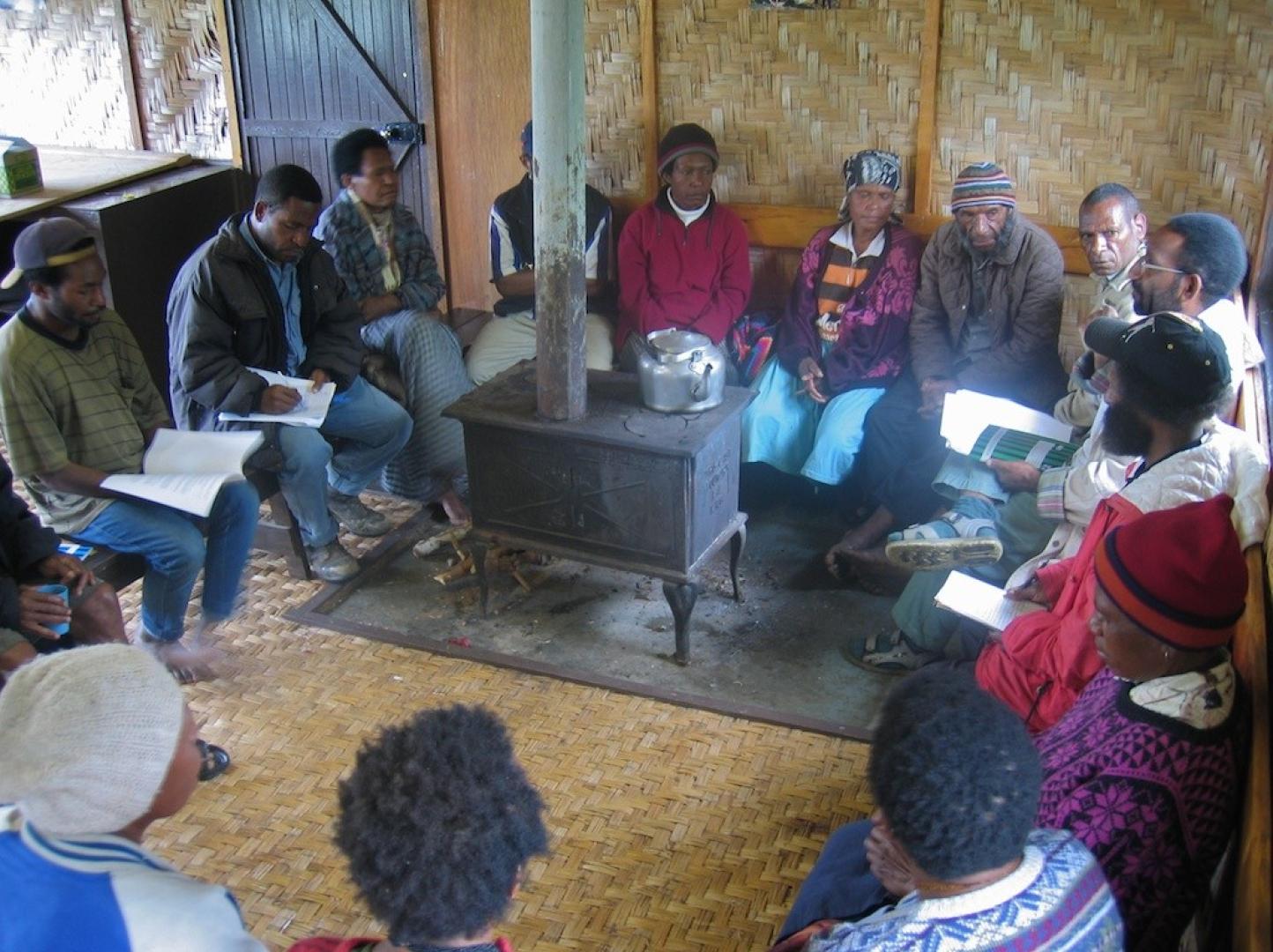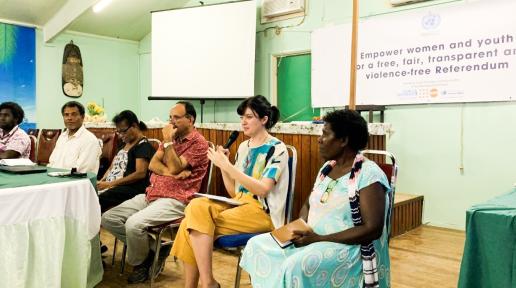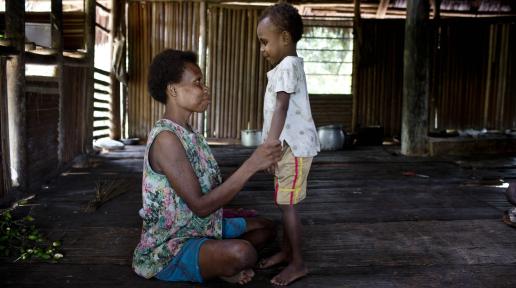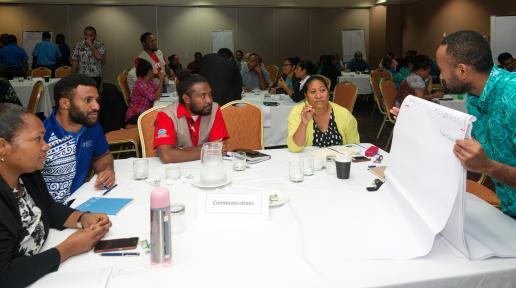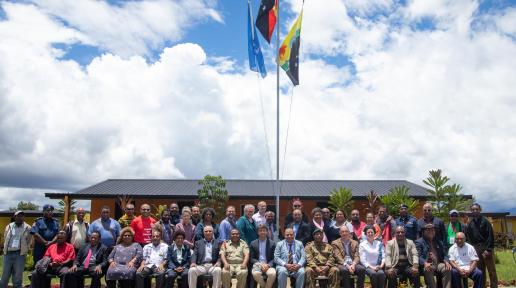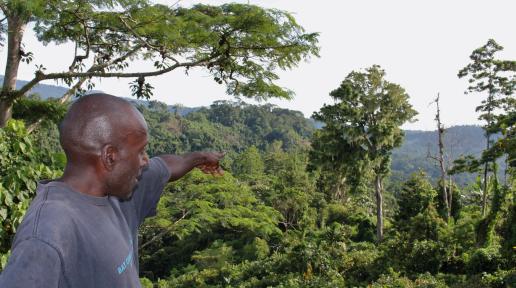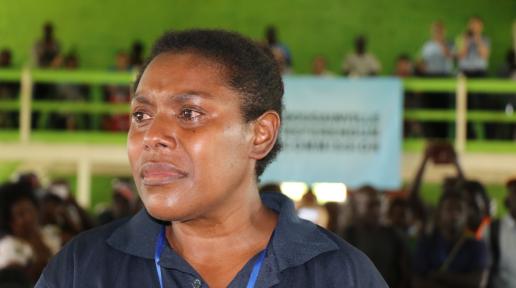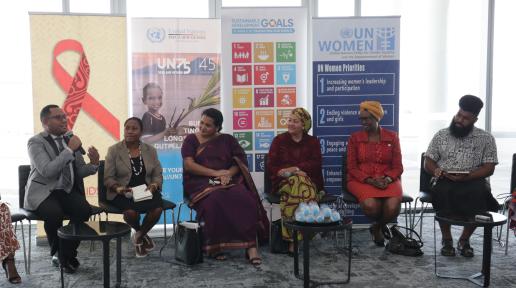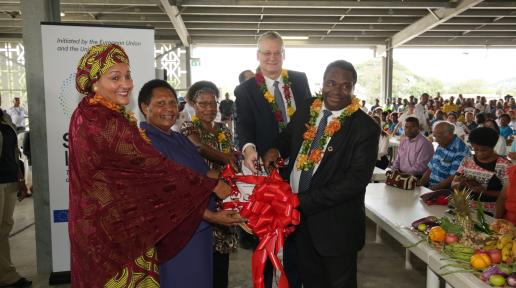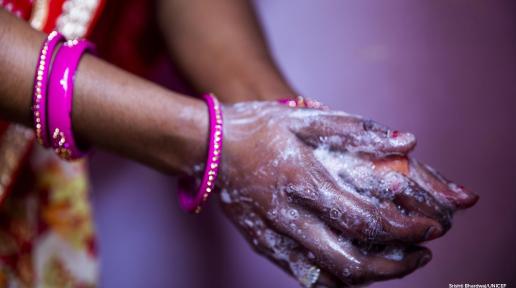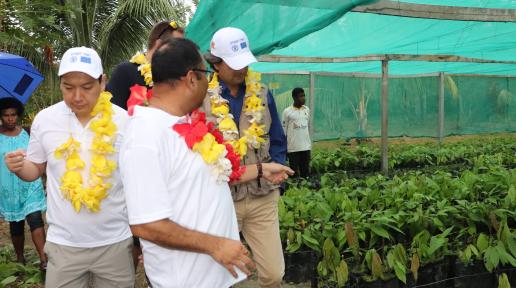Story
10 July 2025
Take Action to End Sorcery Accusation Related Violence
The torture and killing of Rosa Yakapus in Hela Province last week laid bare two sides of Papua New Guinea. One was the brutal violence filmed and spread on social media. The other was the immediate wave of outrage from citizens, leaders, and churches who insisted that such cruelty has no place in modern PNG. Police have already identified and arrested suspects, including Rosa’s own brother – a reminder that accusations within families are often part of the shameful reality many victims endure.The United Nations in PNG stands with the government and civil society in condemning this crime. We hope the case becomes a turning point in the fight against Sorcery Accusation-Related Violence (SARV). A recent UN study shows that the most effective responses arise when communities, churches, police, and local authorities join forces. A fully funded, well-coordinated network could have mobilised the moment threats to Rosa emerged; next time the police must have the necessary numbers, transport, information, and backup to intervene in time and with full effect.Prevention must be prioritized. Too many victims die or suffer lifelong injuries because neighbours hesitate to protect them when the first sorcery accusations emerge. To help change this, the UN and a group of church and civil society partners have launched the Community Curriculum, an eight-week program developed by Divine Word University and the Department of Justice and Attorney General, now being piloted in Enga Province. Facilitators guide small groups of pastors, teachers, youth leaders, and other residents through candid discussions on belief, law, and human rights. More than two hundred people have taken part so far. Some still fear sorcery, yet many are realising that even deep-seated fears cannot justify the violence. Early feedback indicates growing confidence by the community, better understanding, and a stronger commitment to peace. Surveys and stories are helping track progress, while ongoing mentoring helps local leaders sustain change.The Community Curriculum model helps break the chain of inaction and bystander silence that often enables sorcery accusation-related violence. It challenges the myth that sorcery justifies torture or murder and equips community members to speak out and intervene before harm is done. This approach, along with other promising practices highlighted in the recent UN study, shows that prevention is possible. Strengthening gender equality, accelerating the implementation of the National Strategy to End Gender-Based Violence, and supporting sustained youth behaviour change programs are also critical. These efforts help dismantle the power imbalances and harmful social norms that fuel SARV.The UN will reinforce this preventive community engagement through three pillars: health, education, and justice.Health. The UN will help expand emergency care, trauma counselling, and long-term mental health services for survivors and the families who shelter them. Frontline health workers will receive training to spot risks early and to support recovery well after the crisis has passed. Investing in health education and communication, particularly in the prevention of non-communicable diseases, will play a crucial role in preventing future incidents. Many sorcery accusations begin with a death that families and communities cannot easily explain.Education. In partnership with churches, elders, and civil society groups, the UN will help scale up school-based programs as well as grassroots learning programs such as the Community Curriculum. By explaining illness and misfortune in culturally grounded terms and promoting human rights and the rule of law, these sessions chip away at beliefs and behaviours that fuel SARV.Justice. The UN will work alongside the police, village magistrates, prosecutors, the courts, and other authorities down to the ward level to enforce SARV laws consistently, strengthen local by-laws, and ensure at-risk individuals and survivors can seek protection without fear. Visible and trusted avenues for obtaining justice will deter violence and restore confidence in the rule of law. PNG’s future national human rights commission will have a vital role in monitoring cases, advocating systemic reform, and helping survivors claim their rights.These approaches align with PNG’s SARV National Action Plan and the UN Human Rights Council’s resolution 47/8, which highlights global concern over violence linked to witchcraft beliefs. They also align with PNG’s international human rights commitments, such as the Convention on the Elimination of All Forms of Discrimination against Women (CEDAW), which calls for the protection and advancement of the rights of women and girls. When it comes to SARV, women, persons with disabilities, children, and older persons are especially at risk. Protecting them requires strong coordination, sustained funding, and the courage to act on evidence.Rosa Yakapus should still be alive today. In the aftermath of her senseless killing, PNG must seize the lessons learned: prevention begins within the family and the community, swift response saves lives, and accountability deters future attacks. With the right resources and united resolve, PNG can end Sorcery Accusation-Related Violence and uphold the fundamental rights, dignity, and safety of every person.
